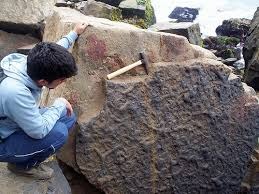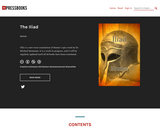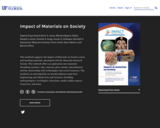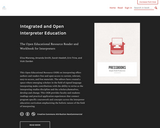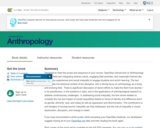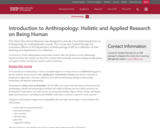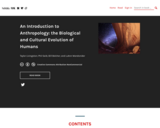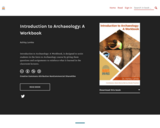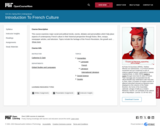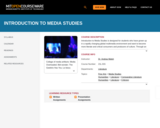This Open Educational Resource was designed to provide a four-field introduction to anthropology for undergraduate courses. This course was created through the cumulative efforts of the Department of Anthropology at IUP as a reflection of their teaching and experiences as a collective.
As instructors of both undergraduate and graduate students alike, the professors in the Anthropology Department hope that students use this book to further their knowledge and understanding of anthropology and apply it in their everyday lives and the world around them.
IUP's Introduction to Anthropology: A Holistic and Applied Approach to Being Human is a 4-field text designed to provide students and instructors with a quality, peer-reviewed free resource that depicts a diversity of perspectives, approaches, and topics related to sociocultural anthropology, biological anthropology, archaeology, and linguistic anthropology.
Consisting of a robust series of 20 modules, the IUP OER covers topics from the history of North American anthropology, cultural and archaeological methods, the origins of humans and our earliest ancestors, the development of agriculture, race and ancestry, sex and gender, kinship, religion, climate change, and human rights and social issues—providing faculty flexibility with topics covered in a typical 15-week semester.
Designed to help students engage more meaningfully with each topic and develop as critical thinkers, the OER includes:
review and assessment questions
discussion prompts
class activities
relevant videos
glossaries
suggested readings
allowing students to dive further into topics no matter their preferred method of learning.
We are proud to host an interactive, digital version of the OER, created through the Articulate platform. We are also rolling out a physical version of the text, published through Amazon's KDP (stay tuned for the link).
Authored by the faculty in IUP's Department of Anthropology, this OER arose from a commitment to provide high-quality resources to all students. We combined the best aspects of our introductory course and teaching to create a robust resource that can be used in any introductory, 4-field anthropology course. Our own applied experiences are integrated into the course materials, as well as those from a range of professional anthropologists (isotopes and kinship studies, indigenous archaeology, forensic anthropology and the race problem, medical anthropology, and a linguistic anthropological analysis of food and power relationships in the prison system, among others!). The result is a resource that provides multiple lenses to tackle common introductory topics while showing students the myriad possibilities of what it looks like to be an anthropologist. Contact us for a LMS package to integrate the course into a Learning Management System.
Senior Authors:
Andrea Palmiotto
Lara Homsey-Messer
Benjamin Ford
Amanda Poole
Abigail Adams
Francis Allard
William Chadwick
Other Contributors
Allysha Winburn, University of West Florida
Alexander Martín, Center for Comparative Archaeology, University of Pittsburgh
Desireé Reneé Martinez, Cogstone Resource Management
Jelmer Davis, University of California, Davis
Anastasia Hudgins, Ethnologica
Sandhyak Narayanan, University of Nevada, Reno
Rachel Horowitz, Washington State University
Lori Labotka, Knoxville, TN
Bridget Roddy, IUP
Ashley Nagle, IUP
Sonja Rossi-Williams, IUP
This OER was made possible through grants from PA GOAL and the IUP Center for Teaching Excellence.

